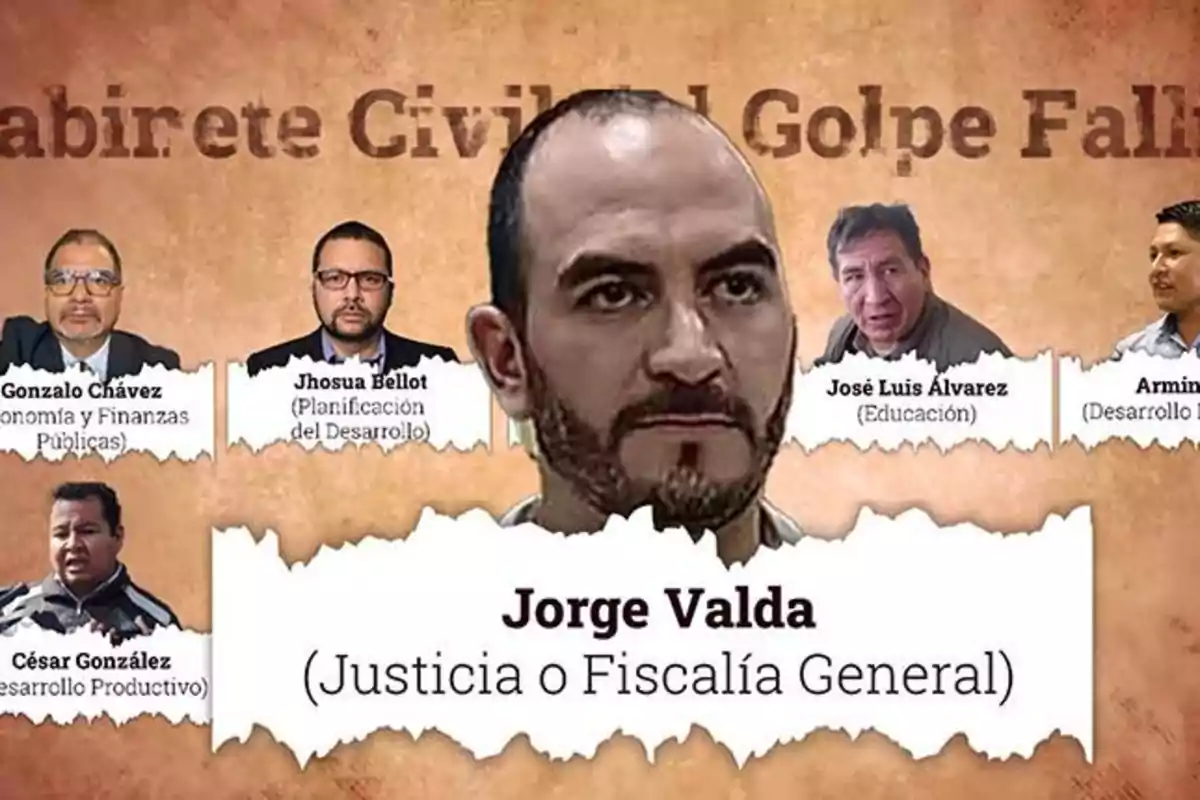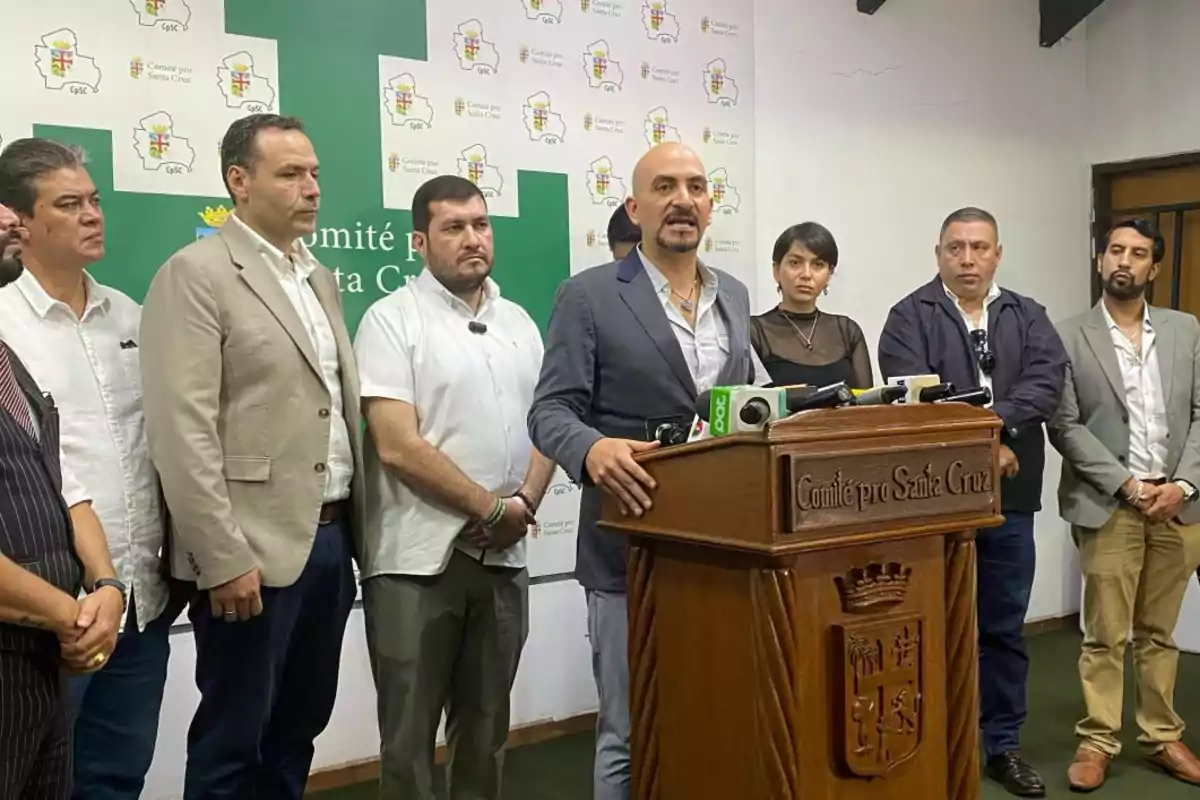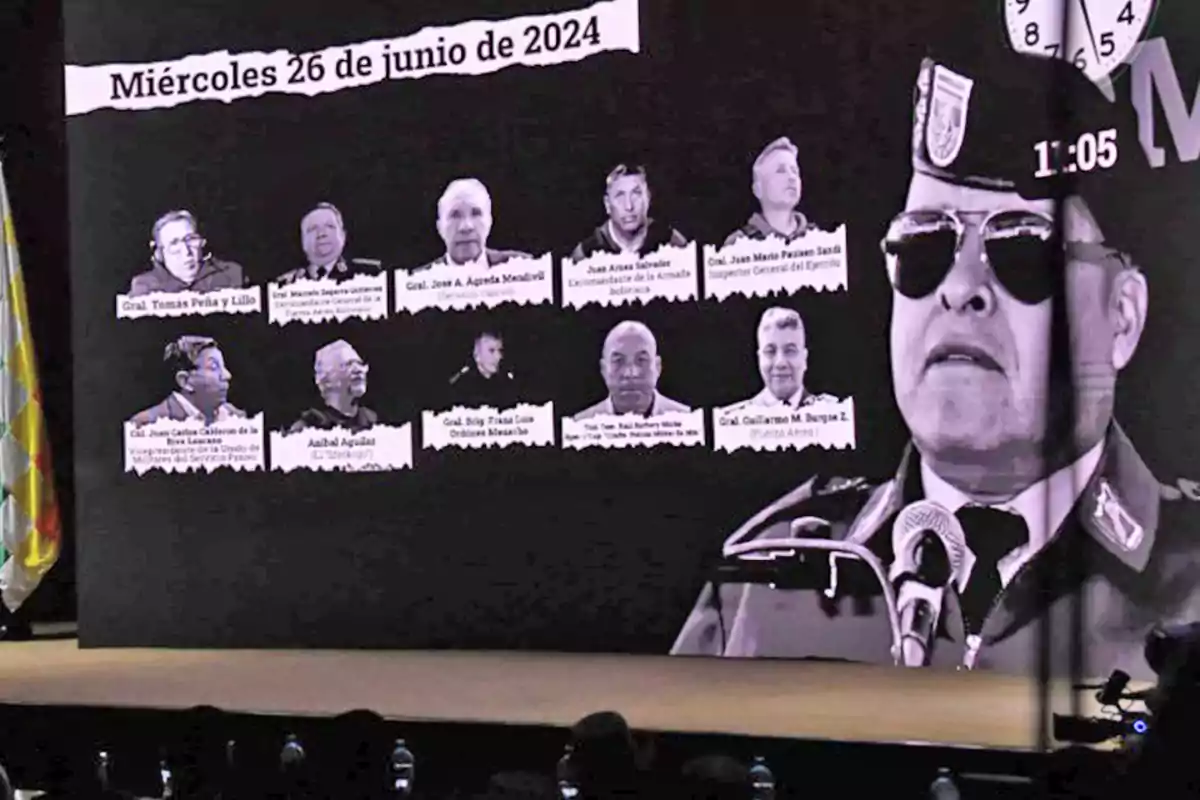
They deserve an Oscar: The pro-MAS documentary was discredited by the population
The questioned documentary is based on assumptions and criminalizes opponents with a worrying ease
The Government's documentary titled ¿Qué pasó el 26J?, has been criticized in the country. Various parliamentarians have described the audiovisual material as "staged" and "propagandistic", Senator Félix Ajpi ironically said it deserves an "Oscar award". The statements emerged after the presentation of the audiovisual on Thursday, April 10.
Ajpi criticized the way the documentary was produced and questioned the use of state resources to create what he called a "farce." In his opinion, the video damages the image of MAS and also ridicules the country. He ironically compared Minister Del Castillo to the production company Metro Goldwyn Mayer.
Meanwhile, regarding the documentary's financing, Ajpi wondered if the money came from the inflated budget of the Ministry of the Presidency. He recalled that the Government claims not to have funds to guarantee the vote abroad, but would have allocated resources to the production of the audiovisual material. This contradiction, he stated, shows a poor prioritization of the country's needs.
During the premiere, the regime stated that the information presented is based on more than 300 statements and documents. According to the Government, it is a serious investigation, supported by the Police and the Public Ministry.
Condemnation based on assumptions?

However, several legislators indicated that there are discrepancies with the data obtained by the special legislative commission. This commission has not yet had access to the people involved in the documentary. Therefore, they question the impartiality of the material.
The "evista" deputy Héctor Arce described June 26 as an "autocoup" and accused the Government of inventing a heroic narrative. He asserted that no one believes the official version about the alleged coup attempt and compared Luis Arce to superheroes like Batman or Terminator. He considered that the documentary seeks to exaggerate the president's role to reposition him politically.
Senator Santiago Ticona, from Comunidad Ciudadana, questioned the intention of the audiovisual and indicated that it is an attempt to "gild" the president's image. Parliamentarian Alberto Astorga supported this view, and both agreed that it is a tool of political persecution. They accused the Government of criminalizing opponents without solid evidence.
One of the affected individuals is lawyer Jorge Valda, the jurist was detained without a visible court order, which caused a wave of protests. After regaining his freedom, he announced a constitutional action to stop the documentary's dissemination. He claimed that the material violates his right to image, honor, and presumption of innocence, and also requested an audit of the case before the State's Attorney General.
Is the regime using the same recipe?

The president of the Comité pro Santa Cruz, Stello Cochamanidis, described his detention as a kidnapping and compared the event to what happened with Governor Luis Fernando Camacho. He criticized the use of unmarked vehicles and plainclothes police officers, noting that the Santa Cruz Prosecutor's Office was unaware of the operation. In his opinion, this demonstrates an intrusion of the Executive into justice.
Carlos Mesa also spoke out about the case, publishing a message in support of Deputy Luisa Nayar, who was mentioned in the documentary. He stated that MAS is creating a "smokescreen" to cover up the economic crisis, saying that the Government seeks to intimidate dissenting voices. Mesa denounced that there is a persecution against those who report corruption and called on citizens to defend democracy.
Nayar publicly denounced the inclusion of her name in an arrest warrant and indicated that the Government is trying to silence her and discredit her work. She stated that she never participated in any conspiratorial act and reiterated that the audiovisual is a baseless montage. She held the Government responsible for any attack on her integrity.
The documentary has also been questioned for its origin and production, it was made by the Communication Unit of the Ministry of Government. Its head, José Llorenti, reportedly resigned hours before the premiere. Although Minister Del Castillo denied his departure, the event raised suspicions because the resignation letter was brief and without explanation.
The documentary's dissemination was accompanied by new arrest warrants, according to the Minister of Justice, César Siles, six people will be sentenced in an abbreviated process. Three military personnel have already accepted guilt for crimes such as terrorism, and three others are waiting to undergo the same process. These sentences would form part of the evidence in a potential oral trial.
Does the population already know the regime's intentions?

The documentary was uploaded to YouTube but received mostly negative comments. The account of the Bolivian Information Agency, where the video is hosted, barely accumulated a dozen "likes." The "dislikes" are not visible, the content has been described as "propaganda disguised as a documentary".
The controversy grows as more names mentioned in the audiovisual are revealed. Figures like Vice Chancellor Reinerio Vargas and deputies Richard Ribera and Luisa Nayar appear implicated, they denied being linked to violent or conspiratorial acts. The massive dissemination of the video has affected their public image, for which they stated they are considering taking legal action.
MAS shows that it acts without legal basis, using state mechanisms to impose its version of events. The dissemination of the documentary, the irregular detentions, and the mention of people without firm evidence are seen as signs of growing authoritarianism. The Government has deepened doubts about its commitment to the rule of law by violating the presumption of innocence and due process.
More posts: